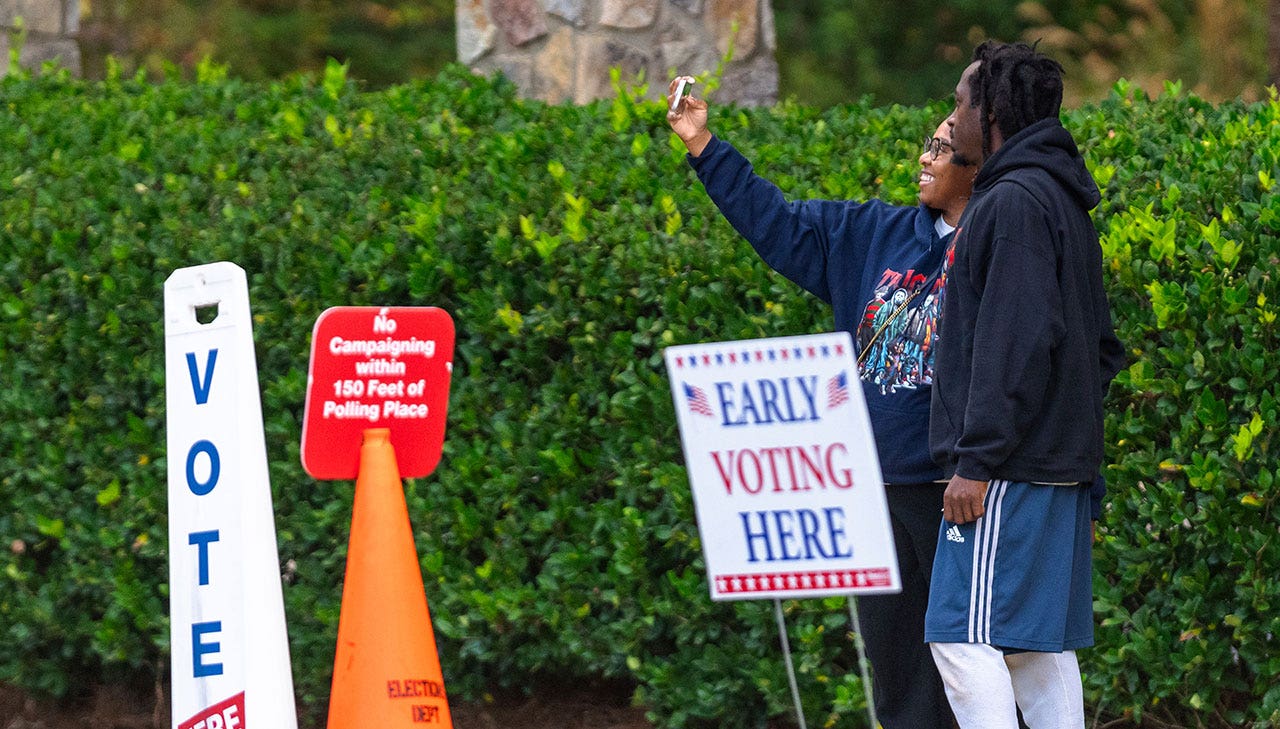The rules for recounting in battleground states vary greatly, and here's a closer look at how they operate.
The rules for recounting votes in the seven battleground states vary widely.

The rules for requesting ballot recounts in close elections vary among the seven major battleground states.
As voters cast their ballots on Election Day, here's a summary of the rules used by the seven swing states - Arizona, Georgia, Michigan, Nevada, North Carolina, Pennsylvania, and Wisconsin - for ordering a recount, as well as the types of recount requests that candidates can legally submit.
Arizona law permits an automatic recount if the leading candidate is separated from their closest competitor by no more than half of 1% of the total votes cast for both candidates.
Georgia law does not mandate any automatic recounts, but a recount can be requested by either candidate if the winning margin is 0.5% or less. The request must be made within two days of the state's certification of the results.

Michigan law permits candidates to apply for a recount if they suspect fraud or mistakes in any precinct. To do so, they must submit a request and deposit for each precinct where they want a recount within six days of the canvassing process's end.
Nevada permits candidates to submit a written request for a recount within three business days of the state's result certification. As in Michigan, candidates must pay the advance deposit prior to the recount to cover any anticipated costs.
The Nevada Secretary of State's office must respond to the request within five days.

If the margin of victory in North Carolina is less than or equal to half of 1% of the vote or fewer than 10,000 votes, candidates have the option to submit a written recount request. This request must be made by noon on the second business day following the conclusion of the county canvas process.
In Pennsylvania, there are three types of recounts permitted by law: statewide automatic recounts initiated by the secretary of the commonwealth, county election board-ordered recounts, and court-ordered recounts.
If a candidate's margin of victory is less than or equal to 0.5% of the total votes cast, a recount submission must be submitted to the Pennsylvania Secretary of State's office no later than 5 p.m. on the second Thursday after Election Day.
According to the Pennsylvania Secretary of State's office, any request for a court-ordered recount must be filed by at least three qualified electors within five days of the end of canvassing and an advance deposit is also required.
In the event of fraud, state law grants relevant parties an additional five days to count ballots. For more information, visit this link on Keystone State recounts.

Candidates in Wisconsin can submit a sworn petition to the state clerk or local officer for a recount, specifying the areas they want to challenge and their reasons for doing so, including allegations of error or fraud.
The election results must be certified by the board of canvassers before the request can be made by 5 p.m. on the third business day after the certification, as per the Wisconsin State Election Board.
politics
You might also like
- California enclave announces it will cooperate with immigration officials and the Trump administration.
- Danish lawmaker urges Trump to abandon Greenland acquisition plan.
- Now, the Dem who labeled Trump an "existential threat to democracy" is obstructing his nominees.
- The lawyer for Hegseth criticizes the "dubious and inaccurate" testimony of his ex-sister-in-law.
- The House GOP outlines a plan to improve the healthcare system, emphasizing its impact on national defense.



















